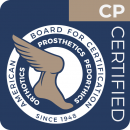“Quantitative assessment of neuromechanical control in lower limb amputees during prosthetic limb fitting sessions”
07/08/14
Data Collection Study
Summary of the Research
In US alone, approximately 1 million individuals are living with lower limb amputations due to various pathological and traumatic conditions such as diabetes and auto accidents. A significant number of amputees opt for a prosthetic limb that provides mobility and increases their ability to perform activities of daily living (ADL) (e.g. shopping).
A good prosthetic fit leads to early adaptation to use of the prosthetic limb. This could help the amputee perform ADL efficiently, lead to faster re-integration into society after amputation and could improve their quality of life. To obtain a good quality prosthetic fit, the prosthetists make iterative adjustments to the prosthetic limb. Evaluation of the prosthesis fit is made by the prosthetist through visual inspection for abnormalities in sitting, standing, walking and balancing motor tasks performed by the amputees while wearing the prosthesis. They also rely on verbal feedback from the amputee. Because of this subjective assessment, the fitting process is highly variable between prosthetists and the quality of the fit is not quantifiable.
We hypothesize that quantitative assessment of neuromechanical control of motor tasks (gait, balance, postural biomechanics and neural control of muscles) during the prosthetic limb fitting iterations may provide the prosthetist an objective measure of the quality of fit and thereby aid both the experienced and novice prosthetist in achieving an optimal fit. Hence neuromechanical measures will be collected to quantify sit, stand, walk and balance using two clinically accepted tests: 1) Timed Up and Go test and 2) Clinical Test for Sensory Integration of Balance. As such, there are no immediate benefits to the subject; however, the results of this study may help prosthetists identify quantitative measures that may aid in improving the fitting process.
Principal Investigator
Ranu Jung, Ph.D.
Professor and Chair of the Department of Biomedical Engineering
Wallace H. Coulter Eminent Scholars Chair of Biomedical Engineering
Author / Co-Investigator
Anil K. Thota
Research Associate
Adaptive Neural Systems Laboratory
Department of Biomedical Engineering
Florida International University


 ADVANCED TECHNOLOGY
ADVANCED TECHNOLOGY
 FREE CONSULTATIONS
FREE CONSULTATIONS